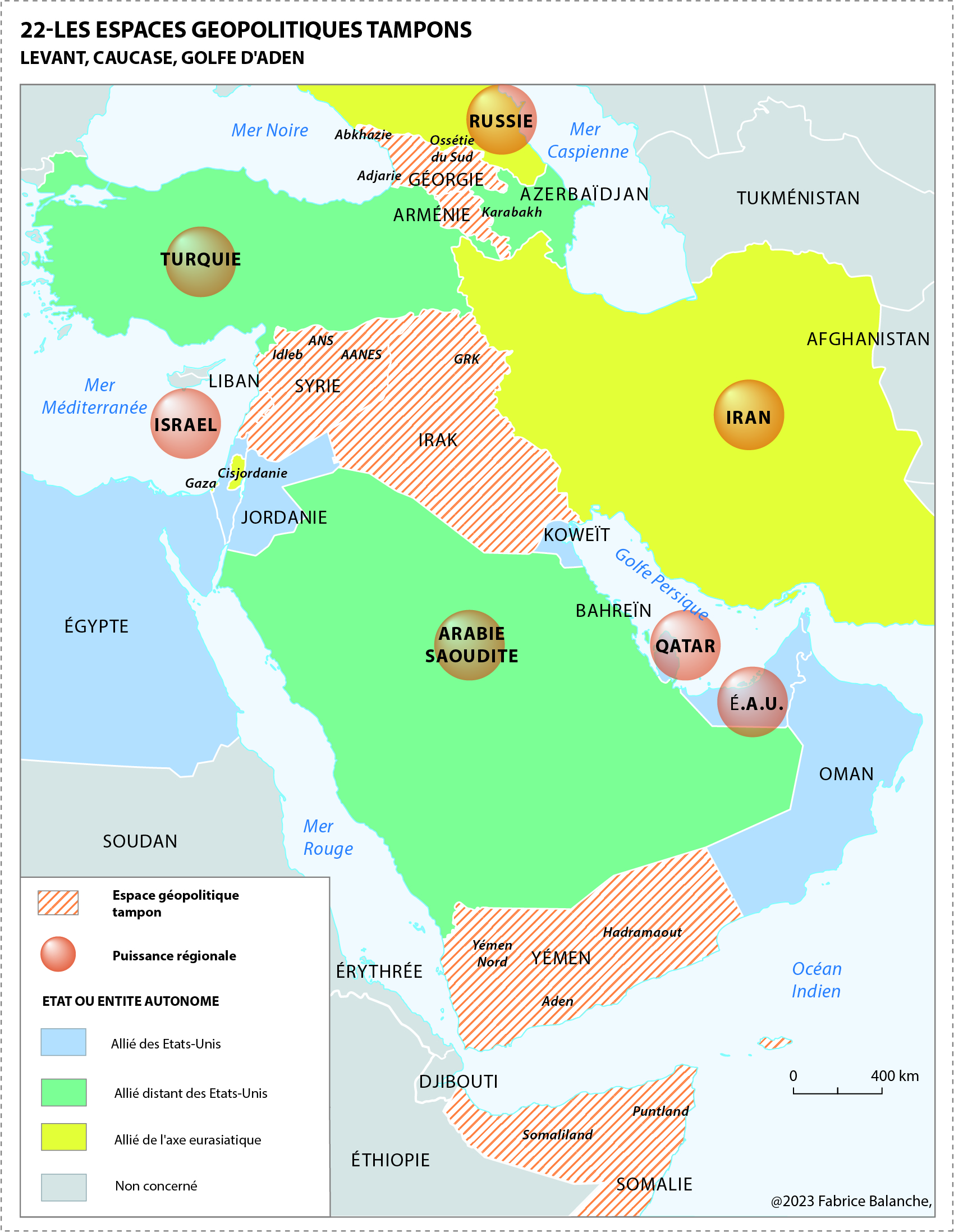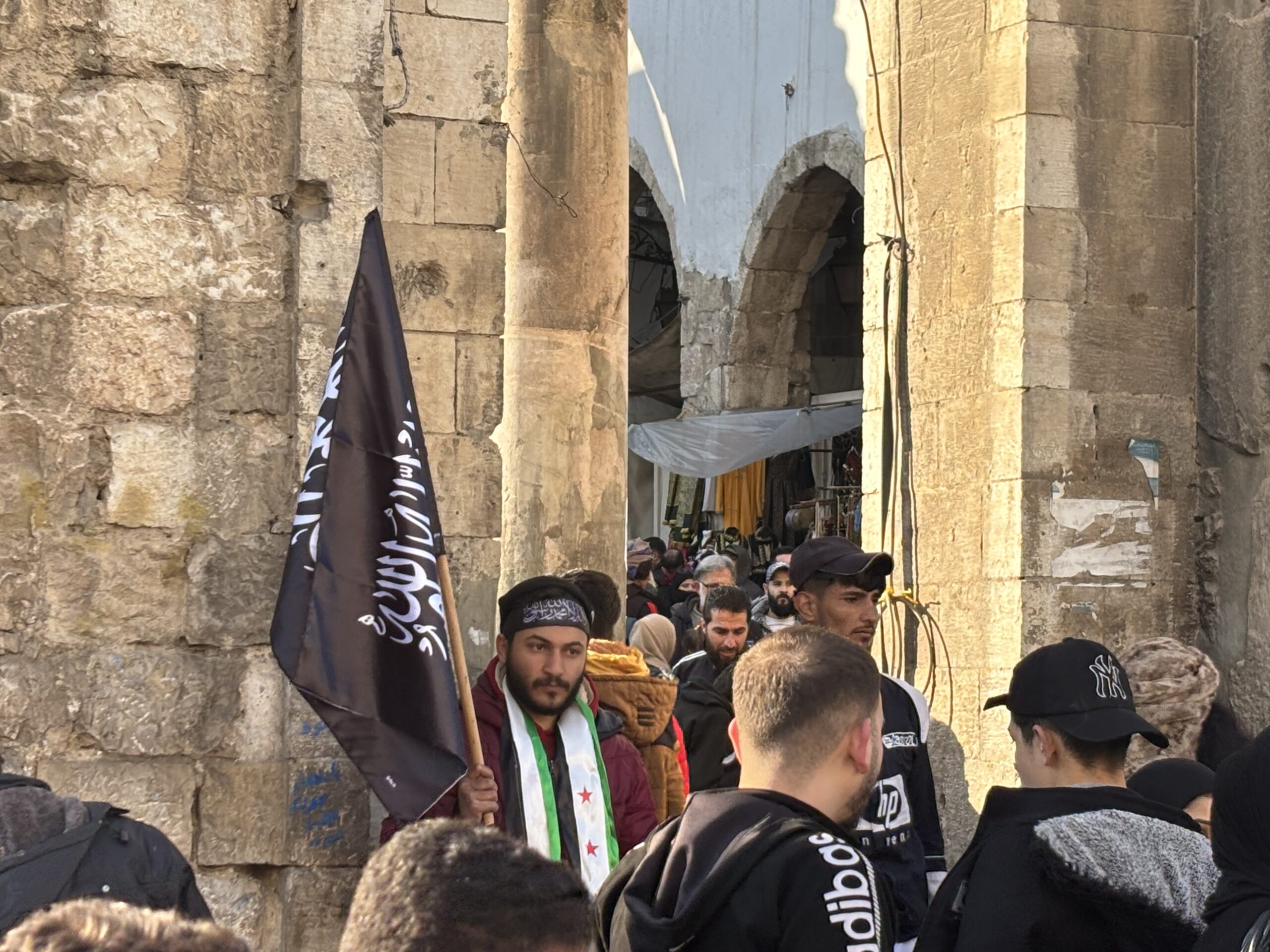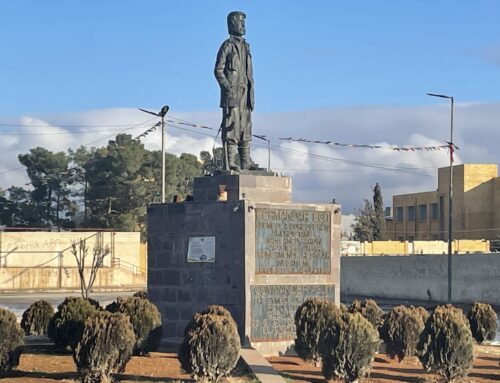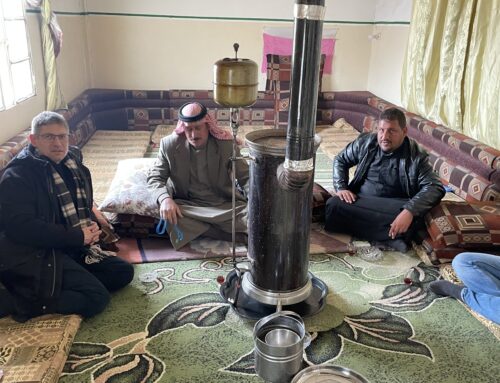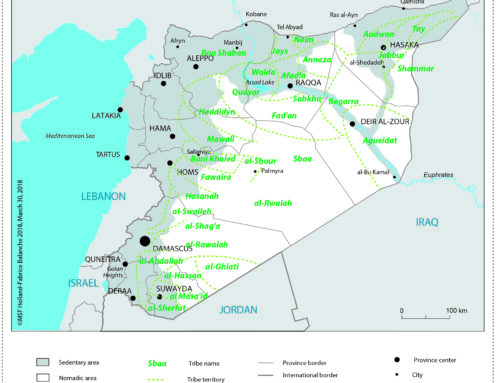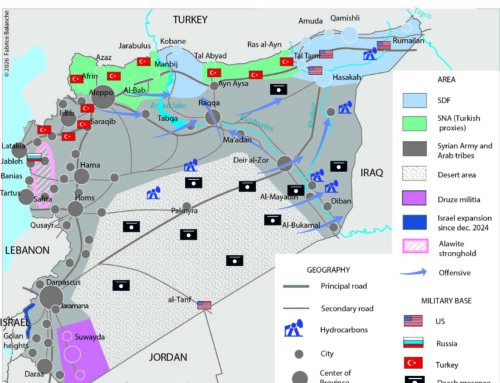Despite a superficial semblance of restored order, Syria under Ahmad al-Sharaa’s leadership remains a precarious state, grappling with internal strife, foreign meddling, and Israeli pressure. Amidst the allure of renewed investment and political manoeuvring, the mirage of regained prosperity dissipates. In the face of the harsh truth, it is essential to adopt a prudent and realistic approach to foreseeing Syria’s future.
Published in Conflicts, October 23, 2025
Fabrice Balanche, a preeminent authority on Syrian matters, has recently returned from Syria, where he spent several weeks analysing social and political trends. Through a series of insightful articles, he shares his observations, highlighting the myriad obstacles facing the latest leader, al-Sharaa. These include economic hardships, communal divisions, and widespread insecurity. With his incisive analysis, Balanche sheds light on the daunting challenges that lie ahead for Syria’s newest leader.
Syria established a parliament in early October, and investment promises from the Arab Gulf poured in. A delegation from the French employers’ federation (MEDEF) even visited Damascus. Is this an indication of a bright future for Syria, following decades of Ba’athist authoritarian rule and a destructive civil conflict?
Supporters of the new Islamic regime see clashes with minorities as a necessary evil for uniting and rebuilding the country. Communication specialists from the British NGO Inter Mediate, surrounding the Syrian President, polish his image in the West and spread a positive portrayal of Syria. Sceptics are being labelled as being part of a pro-Assad group, ISIS, or loyal to al-Qaeda, just as in 2011. Back then, expressing the belief that Bashar al-Assad would not fall easily earned you the label of pro-Assad. The communications war is still ongoing, and a realistic approach based on field research and long experience in the country is necessary.
To begin, it is undeniable that Syria has evolved into an Islamist autocracy under the leadership of Ahmad al-Sharaa. Western governments are realistic about the ongoing political process, which they only demand be inclusive, rather than democratic. This political landscape inexorably drives out religious minorities, secular individuals of all backgrounds, and potentially the Kurds if they lose their autonomy. In this political climate, stability can only be achieved through fear and repression, not through illusory economic prosperity. Territorial fragmentation does not seem likely, as the forces opposing the HTS regime do not appear able to establish lasting strongholds.
Today, Israel supports the Druze in Suwayda, while the United States backs the Kurds. But will this last? The centralized, Islamist regime that is emerging rejects all decentralization, never mind a federal solution. Will he have the resources to carry out his political agenda, both at home and abroad? The rebuilding of the country and economic revitalization are just two of the many challenges he must overcome. He also needs to navigate internal disputes among his own allies and address dissent from various tribes. To complicate matters further, he is in a precarious geopolitical position until he reaches an understanding with Israel.
Considering a pact with Israel?
To begin, it’s crucial to recall that Ahmad al-Sharaa ascended to power due to Israel’s determination to deal a fatal blow to Bashar al-Assad’s regime. Following the events of October 7, 2023, Benjamin Netanyahu made a firm commitment to dismantling the Iranian axis, which enabled Hezbollah to obtain missiles from Tehran and pose a direct threat to the Jewish state.
The repeated bombing of infrastructure and pro-Iranian groups, such as Hezbollah, Popular Mobilization Units, and the Revolutionary Guard) led them to withdraw from the country, abandoning a Syrian army that had lost the will to fight. If the Syrian military had stood its ground, Bashar al-Assad might have faced the same fate as Hassan Nasrallah. It was essential for Israel to expel Syria and Lebanon from Iran’s sphere of influence. However, the State of Israel is determined not to allow a revengeful Sunni Islamic republic to be established in Syria.
It seems that Tel Aviv’s goal is to secure a peace agreement with Damascus while maintaining complete dominion over the Golan Heights and stationing its troops in the demilitarized zone, which is currently overseen by UN peacekeepers.
In December 2024, the IDF destroyed all Syrian military sites, including weapons depots, air defence systems, aircraft and radar installations. As a result, Syrian airspace, like that in Lebanon, is now Israeli airspace. There is no question that Syria could rebuild its air force with Turkish support.
These stringent stipulations are hard for a leader to bear, whose nom de guerre for two decades was “al-Julani” (the Golani). This name reflects his familial lineage, but most importantly, his dedication to freeing the land from Israeli occupation. However, can the former jihadist, now acting president, do anything different if he hopes to secure financial assistance and the total removal of American sanctions?
During his meeting with Ahmad al-Sharaa in Riyadh on May 14, 2025, Donald Trump vowed to lift sanctions against Syria. However, as of October 10, 2025, these sanctions have yet to be fully removed. The US Senate recently voted to repeal the Caesar Act, which will allow Syria to rejoin the global financial system by the end of December 2025, provided the House of Representatives and Donald Trump approve the decision.
The United States maintains significant influence over Damascus, encouraging them to promptly enter a peace deal with Israel. Furthermore, it appears that Washington is urging the Gulf monarchies not to provide substantial aid to Syria until it capitulates, and the same goes for Lebanon until Hezbollah is disarmed. Israel’s airstrike on Doha on September 9 can be interpreted as a warning to Qatar regarding its support for Hamas and Ahmad al-Sharaa, as the emirate significantly contributes to the salaries of Syrian military and civil servants. However, Benjamin Netanyahu is impatient and does not want to engage in lengthy negotiations during which the al-Sharaa regime could consolidate its power and become hostile to the return of the Golan Heights. During the 1990s, Hafez al-Assad gained economic and diplomatic advantages from his positive relations with Israel. However, these discussions abruptly ended just as the two parties were about to finalize a groundbreaking agreement in 1999.
Unlike Hafez al-Assad, Ahmad al-Sharaa does not lead an autonomous nation. For the peace treaty to be ratified, Turkey, Qatar, and Saudi Arabia—its main donors—need to approve it. They can demand that Israel recognizes a Palestinian state as a condition for their support.
The ongoing conflict in the Gaza Strip, which erupted in October 2023, has led to tension between Israel and Saudi Arabia. Despite this, Saudi Arabia has demonstrated its solidarity with the Abraham Accords by encouraging two of its allies, Bahrain and Sudan, to join the pact.
Ankara is adopting a more assertive posture than Riyadh, aiming to seize the Palestinian cause and fill the void left by Tehran. As a result, the intense rivalry between Ankara and Riyadh to lead the Sunni community could endanger the Syrian Israeli peace negotiations.
Turkey, Qatar, Saudi Arabia: The Triple Influence
Regarding Qatar, which is allied with Turkey, it will not favour an agreement that benefits its regional rivals, the United Arab Emirates and Saudi Arabia, unless it gets something in return, particularly concerning its own security. The memory of the blockade imposed by its neighbours (2017–2020) is still very much alive. Therefore, American diplomacy will need to work hard to achieve a consensus on this matter.
The animosity between Ankara and Riyadh is evident in Syria itself. Saudi Arabia opposes the idea of Turkish and Qatari domination of Syria. It, too, aspires to exert its influence. However, it has fewer means of action on the ground than these two Sunni rivals, who supported HTS until its victory. Nevertheless, Riyadh maintains strong ties with the tribes, including the large confederations that unite Saudi clans. In the month of July 2025, Saudi Arabia actively participated in the recruitment and deployment of many tribal warriors. These fighters made their way towards the Jabal Druze region, following the departure of Syrian government troops. Riyadh aimed to show Ahmad al-Sharaa that it wielded influence in Syria that could prove beneficial in his struggle against the Druze or other groups. However, the Saudis also recognized that this leverage could be used against al-Sharaa in the future.
Saudi Arabia and Turkey may seem to advocate for a unified and centralized Syria on paper. However, their real motives are to establish areas of influence within the country. Ankara has a strategic advantage due to its military backing for Tahrir al-Sham (THS) during the conflict. Additionally, it continues to wield influence over the former members of the Syrian National Army (SNA), despite the latter’s formal disbandment. These factions continue to exert influence over the Aleppo region and the territory connecting Tel Abyad and Ras al-Ayn. Moreover, Ankara is the country’s most important trading partner. Turkish products are currently flooding the Syrian market, and Turkish companies are at the forefront of reconstruction.
Saudi Arabia is informing Ahmad al-Sharaa that its intervention has led to the removal of US sanctions, allowing for the infusion of billions of dollars into its economy, as indicated by the recent string of investment agreements.
Iran has been removed from the game, while Russia’s objective is limited
The rivalry between Turkey and Saudi Arabia is less likely to destabilize Syria than the previous conflict, which ended with the downfall of Bashar al-Assad’s regime. Iran’s influence has waned significantly, and it no longer possesses any substantial tools of influence over Syria. Russia remains a potential source of disruption, but its goals are limited to protecting its military airbase in Latakia and its naval facility in Tartus. The frequent diplomatic exchanges between Damascus and Moscow suggest that they have reached an agreement. Therefore, Syria can count on Russia’s protection against external destabilization, but only if it settles its dispute with Israel as soon as possible.
Ahmad al-Sharaa faces the possibility of being overthrown or even assassinated due to a contentious treaty that many jihadists vehemently oppose and that most Syrians find unpalatable. However, if peace remains elusive, a metaphorical sword of Damocles will persistently hover above Syria, impeding its rebuilding efforts and exacerbating domestic instability, given the current dire state of the Syrian economy.


